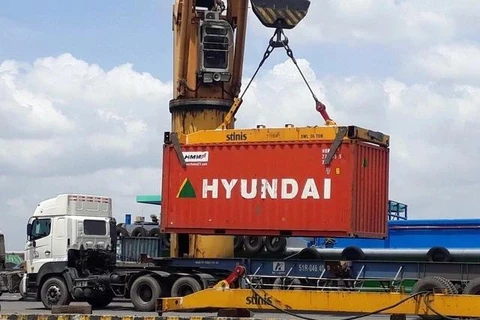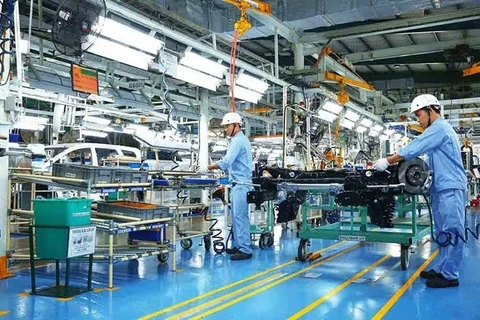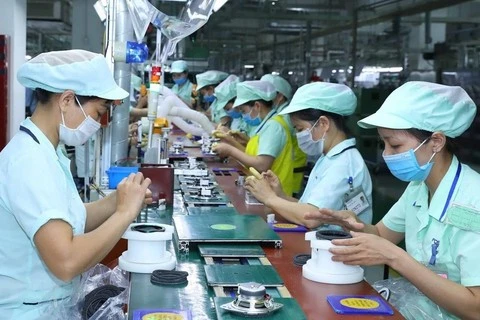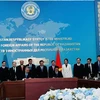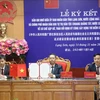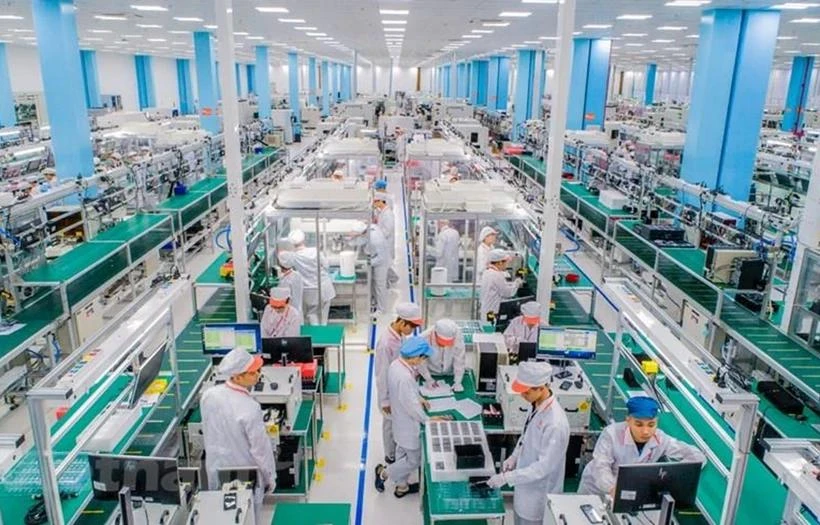
Hanoi (VNA) - Favourable fundamentals have positioned Vietnam as a prime FDI destination, outperforming ASEAN peers, according to HSBC’s latest report titled “Vietnam at a glance: FDI - Back to the basics”.
The nation has enjoyed FDI inflows well above 4% of its GDP, being among the highest in ASEAN.
HSBC experts assessed that competitive costs and a favourable investment climate play a key role in drawing foreign firms, especially manufacturers, to set up factories in, and export goods from, Vietnam.
In the past 20 years, Vietnam has grown to become a major manufacturing base that is tightly integrated with the global supply chain. Exports have grown more than 13% annually on average since 2007, dominated by foreign-invested enterprises.
Traditionally, FDI inflows have been led by the Republic of Korea, most notably by Samsung. Since Samsung’s establishment of its first phone factory in the northern province of Bac Ninh in 2008, more than half its global smartphone production is now done in Vietnam, with a cumulative investment capital in excess of 20 billion USD.
Since the beginning of this year, new registered FDI rose 36% from the previous year. The northern province of Bac Ninh received more than 30% of the total capital registered in June and July, as Amkor group added 1.07 billion USD to its semiconductor project in the province.
In fact, the surge of interest in Vietnam from multinational corporations stems from a variety of factors, including competitive costs and FDI-friendly policies. When comparing labour costs across Asia, manufacturing wages in the country tend to be lower than those in mainland China and in other regional peers.
Furthermore, the nation has made significant progress in terms of setting up various economic agreements with major trading partners, such as the EU-Vietnam FTA (EVFTA) and the Comprehensive and Progressive Agreement for Trans-Pacific Partnership (CPTPP).

In turn, these developments have enabled greater foreign investment, with Vietnam increasingly seen as being open to FDI. Part of the favourable investment environment can be explained by proactive support from the Government tax breaks.
Vietnam has a competitive position relative to its peers with a 20% statutory corporate income tax rate. In addition, some firms have been able to use lengthy tax breaks and holidays in order to reduce the effective rate further. Economists said that factors beyond tax considerations, such as the overall quality of infrastructure, will also need to be addressed as the Global Minimum Tax is implemented across jurisdictions.
So far, these factors have been important in attracting investment and integrating Vietnam's economy with the global value chain. In fact, Vietnam’s global value chain participation rate has sharply risen over the years, now comparable to that of Singapore.

Vietnam is now positioned as a hub for importing complex intermediate inputs for final assembly, corroborated by a low localisation rate in the electronics industry. The report noted that if the country is to sustain robust investment inflows, it will be critical for Vietnam to climb up the manufacturing value chain and raise the domestic value-added content in these goods. Compared with the sharp rise in consumer electronics exports, Vietnam’s share of global integrated circuit (IC) exports has grown at a slower pace.
Measures such as further leveraging digitalisation to streamline trade processes, securing green energy, and facilitating goods transport through better infrastructure, are all factors which are likely to impact foreign direct investment decisions over the coming years./.
